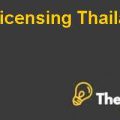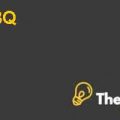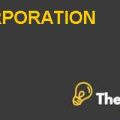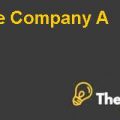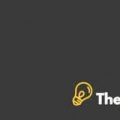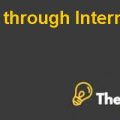
The Google IPO
Executive Summary
Google Inc. was established in 1998 in United States after extreme struggle of five years by tow university graduates for establishment of their business in the information technology industry. Google Inc. was providing online search facility to the world. In 1999, Google Inc. received $25 million funds from a venture capital group to expand its business. Google Inc. kept on introducing new technologies, gadgets and products such as image search, mail-order catalogue and an advertisement program called adsense.
After successful running of its business, Google Inc. captured a big internet user market and came into a position where it was competing with long-established businesses in the information technology industry such as Yahoo!, eBay and Microsoft.
Moreover to meet expansion needs and to access the equity market, Google Inc. decided to offer its share to the institutional investors and general public through initial public offering (IPO). Mainly two options were available to Google Inc. for going public; first option was to offer its shares using book-building IPO and the second option was sealed-bid auction.
Detailed analysis of the two IPO processes has been carried out by taking into account the advantages and disadvantages that both the options offer. The analysis reveals that Google Inc. should go with sealed-bid IPO for initial offerings of its shares to the institutional investors and the general public.
However Google Inc is also recommended to take active part in the sealed-bid IPO process to exert its opinion and suggestions to reap the desired result which is issuance of share to long-investors at market competitive price; based on market demand and supply forces.
Introduction
Two computer science graduates of Stanford University, Larry Page and Sergay Brin started their business in the information technology industry by launching their web-based search engine. Initially, the search results were based on the number of key search words matching within the page; however later on, in order to develop the search engine and provide more relevant and extensive search results, Page and Brin developed the search engine to show search results based on not only greater key word matches but also on the importance and relevance of other pages linked with the target page. In 1998, they ran their first data base center from a bedroom. Moreover, they sought for a financer and approached Yahoo! However their efforts were not appreciated by Yahoo but somehow, they managed to arrange $1 million from close family members and friends and founded Google Inc. in 1998. Next year they moved Google’s office to the University Avenue and expanded their staff. In the same year Google Inc. was funded with $25 million by Sequoia Capital and Kleiner Perkins Caufield and Buyers.
In order to provide best search results and universal accessibility of information to the world, Google Inc. introduced new search features for searching specific pictures and mail-order catalogues. Moreover to increase its revenues, Google Inc. introduced an advertisement program which boosted its revenues. In 2003 as a result of increased business growth, Google Inc. was competing with Yahoo!, eBay and Microsoft. In 2004, Google Inc. was considering to offer its share to the public through initial public offerings (IPO).
Problem Statement
The Google Inc. was concerned about whether it would be worth going public, and if it was worthwhile then it had to decide the method to market its shares, this could be either “traditional book-building” or “sealed-bid auction”, Google Inc. should adopt for initial public offering (IPO).
Analysis
Should Google Go Public
Google Inc. is in need of funds to invest in research and development work for identification of new ways for growth and expansion of its business and to meet the growing business expenses. Going public by offering its shares to the general public and institutional investors is an idea under consideration to access the required funds from equity market. In this regard, Google Inc. is considering two methodologies for initial public offerings which include: traditional book-building process and auctioning.
Traditional Book-Building IPOs
Book-building method of launching initial public offering (IPO) involves investment banks to launch the initial public offering as underwriters. Underwriters select the issue price of new shares based on building a book using the bids received from potential investors. The process typically involves three steps which include: choosing an underwriter, meeting SEC regulations and then finally marketing the initial public offering.
Selection of Underwriter
The initial public offering process begins with the selection of suitable investment banks in order to carry out the process of initial public offerings on behalf of the issuer. Issuer is a term used to refer to the firm looking for initial public offering. The investment banks are selected on the basis of their expertise, and ability to perform high-profile analysis of the institutional investors. Once a suitable investment bank has been identified by the issuer, then the issuer writes an intent letter to the investment bank for launching the initial public offering on behalf of the issuer as underwriter. The letter of intent is a legal document that also specifies the underwriter’s commission and gives underwriter “Green Shoe” option, a term allowing underwriter for 15% over allotment of shares............................
This is just a sample partial case solution. Please place the order on the website to order your own originally done case solution.
In spring 2004, Google was one of the most talked about ideas IPO, since Netscape went public in 1995. Bullish investors believed, Google could trigger a series of successful IPO, after a lull in technology offering activities from 2000. Google executives faced a number of issues in the coming months: If Google to go public? What options did Google have to make its shares on the market? Has been the traditional form of book-building necessarily the best course of action? Can private auction (eg, OpenIPO WR Hambrecht c) give excellent results? "Hide by Matthias Hild Source: Darden School of Business 13 pages. Publication Date: May 18, 2004. Prod. #: UV3867-PDF-ENG

